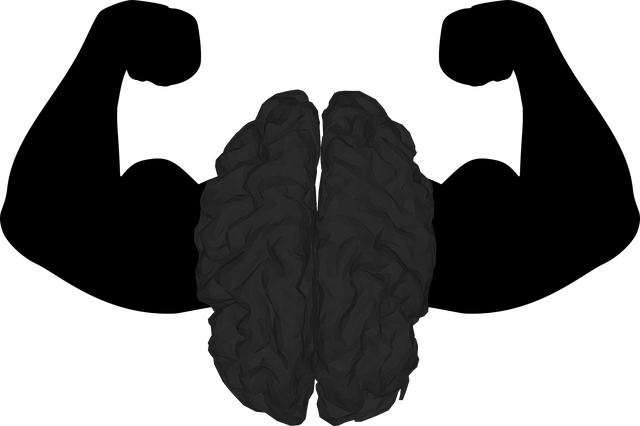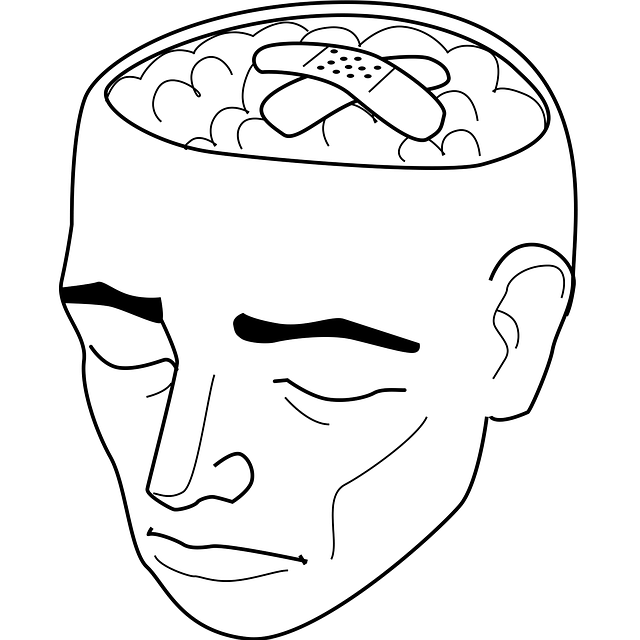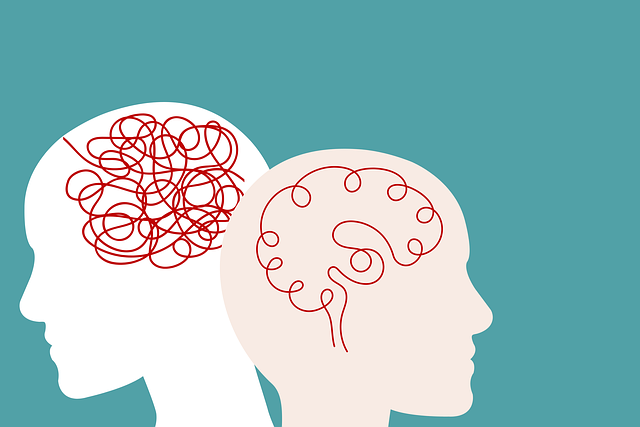Depression, a complex mental health disorder marked by persistent sadness and routine changes, can be prevented through early identification of symptoms like altered appetite and sleep patterns, along with understanding risk factors such as genetics, trauma, chronic illness, and personality traits. Wheat Ridge Interpersonal Issues Therapy (WRIIT) offers tailored support from mental health professionals, focusing on interpersonal relationships, empathy-building, communication skills, and holistic lifestyle changes. WRIIT addresses root causes often missed in traditional treatments, equips individuals with tools to manage symptoms, build resilience, and maintain healthy relationships, contributing to overall well-being. Additionally, maintaining a healthy lifestyle through proper nutrition, regular physical activity, and consistent sleep routines complements WRIIT's approach, fostering proactive mental health advocacy within communities.
Depression is a prevalent yet complex condition, affecting millions worldwide. This article explores effective prevention strategies to empower individuals in maintaining mental well-being. We delve into understanding depression’s symptoms and risk factors, offering insights for early intervention. One highlighted approach is Wheat Ridge Interpersonal Issues Therapy, a holistic method focusing on interpersonal relationships. Additionally, lifestyle changes such as diet, exercise, and sleep optimization are crucial. Building a robust support network further strengthens resilience against depression.
- Understanding Depression: Recognizing Symptoms and Risk Factors
- Wheat Ridge Interpersonal Issues Therapy: A Holistic Approach to Prevention
- Lifestyle Changes for Mental Well-being: Diet, Exercise, and Sleep
- Building a Support Network: The Power of Social Connections
Understanding Depression: Recognizing Symptoms and Risk Factors

Depression is a complex mental health disorder that significantly impacts an individual’s daily life and well-being. Understanding depression involves recognizing its various symptoms, which can range from persistent sadness to changes in appetite and sleep patterns. It’s crucial to be aware of potential risk factors, such as genetic predisposition, traumatic life events, chronic illnesses, and certain personality traits. Early identification is key; seeking support from mental health professionals like those at Wheat Ridge Interpersonal Issues Therapy can be transformative. They can provide tailored strategies for managing symptoms, addressing underlying issues, and fostering resilience.
Building resilience is a powerful tool in depression prevention. This involves developing coping mechanisms to navigate stress and difficult emotions effectively. Stress reduction methods, such as mindfulness practices, exercise, and healthy sleep habits, play a significant role in maintaining mental equilibrium. Moreover, cultural sensitivity in mental healthcare practice ensures that individuals from diverse backgrounds receive personalized support. By recognizing the unique experiences and beliefs of each person, therapists can create a safe and inclusive environment, enhancing the effectiveness of prevention strategies.
Wheat Ridge Interpersonal Issues Therapy: A Holistic Approach to Prevention

Wheat Ridge Interpersonal Issues Therapy (WRIIT) offers a unique and holistic approach to depression prevention by addressing the root causes often overlooked in traditional treatments. This therapy focuses on improving interpersonal relationships, which is a key factor in mental health policy analysis and advocacy. By fostering empathy building strategies within individuals and their support networks, WRIIT helps to break down barriers and reduce feelings of isolation—a significant contributor to anxiety relief and overall well-being.
The approach is designed to empower individuals to navigate their social environments with greater ease, enhancing their ability to cope with stress and adversity. Through intensive training in communication skills, emotional regulation, and conflict resolution, WRIIT equips people with the tools necessary to build and maintain healthy relationships. This proactive strategy not only prevents depression but also promotes a sense of belonging and community, which is vital for mental health advocacy.
Lifestyle Changes for Mental Well-being: Diet, Exercise, and Sleep

Maintaining a healthy lifestyle is a powerful tool for preventing depression and promoting mental well-being. One of the key aspects to focus on is nutrition; eating a balanced diet rich in fruits, vegetables, whole grains, and lean proteins can significantly impact mood regulation. The foods we consume play a direct role in brain chemistry, affecting neurotransmitters like serotonin and dopamine that are crucial for stable moods. For instance, foods high in omega-3 fatty acids, such as salmon and flaxseeds, have been linked to lower depression risks.
Regular physical activity is another cornerstone of mental health care. Exercise releases endorphins, often referred to as ‘feel-good’ hormones, which can alleviate symptoms of depression and anxiety. Activities like walking, swimming, or even joining a yoga class can provide an outlet for stress relief and improve overall mood. Additionally, establishing a consistent sleep routine is essential; adequate rest allows the body and mind to recharge, enhancing resilience against mental health challenges. The peaceful environment of Wheat Ridge Interpersonal Issues Therapy can complement these lifestyle changes, offering empathy-building strategies, social skills training, and communication techniques to further strengthen one’s mental fortitude.
Building a Support Network: The Power of Social Connections

Building a strong support network is a vital aspect of depression prevention and can significantly enhance one’s mental wellness. Social connections provide a sense of belonging and purpose, which are essential for maintaining good mental health. According to studies, individuals with robust social ties tend to have better coping mechanisms and higher resilience when facing challenging situations or emotional distress. This support system acts as a safety net, offering comfort, understanding, and practical assistance during difficult times.
Wheat Ridge Interpersonal Issues Therapy emphasizes the power of human connection and can guide individuals in cultivating meaningful relationships. Techniques like active listening, open communication, and empathy-building skills facilitate deeper connections with others. Additionally, engaging in social activities, joining support groups, or even keeping a Mental Wellness Journaling Exercise can help foster positive thinking and provide an outlet for emotions. By integrating these practices into daily routines, individuals can strengthen their support networks and better navigate the challenges that may arise, ultimately contributing to improved mental health awareness and overall well-being.
Depression prevention is a multifaceted approach that combines understanding, support, and proactive strategies. By recognizing symptoms early and addressing risk factors, individuals can take significant steps towards maintaining mental well-being. Integrating holistic practices like Wheat Ridge Interpersonal Issues Therapy offers valuable tools for navigating interpersonal challenges and fostering resilience. Additionally, adopting healthy lifestyle changes, such as regular diet, exercise, and sleep routines, further strengthens an individual’s defense against depression. Building a robust support network is also crucial, emphasizing the power of social connections in prevention and recovery. Combining these strategies empowers folks to proactively manage their mental health and lead fulfilling lives.














